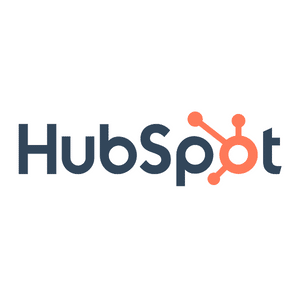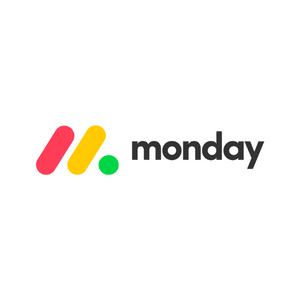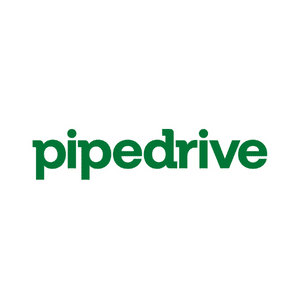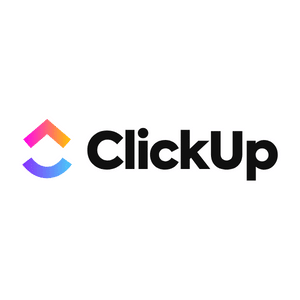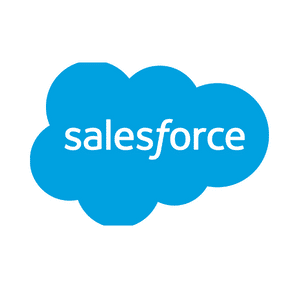As a consultant in the manufacturing industry for over a decade, I’ve had the pleasure of helping many manufacturing companies find the best CRM for their needs.
In my experience, there is no one-size-fits-all answer when selecting the right CRM system. Each company has different needs and objectives.
However, it’s essential to find the CRM software that fits your business’s needs, so you don’t waste time and money with software that doesn’t fit.
The Small Business Bonfire team and I have completed an in-depth review of the best CRM for manufacturing based on:
- A decade of CRM experience in the industry
- Pricing plan flexibility
- Side-by-Side comparisons
- Features review
What is a CRM for Manufacturers?
CRM stands for Customer Relationship Management and is a software solution for managing customer relationships.
Specifically, this software helps manufacturers streamline processes such as sales, marketing, customer service, order management, and more.
The best CRM systems can help you quickly identify potential customers who fit your target market by segmenting leads, creating detailed customer profiles, and tracking key sales metrics.
They can also automate mundane tasks like follow-ups, quotes, invoices, and delivery confirmations.
The bottom line is that investing in a sound CRM system can save you time, money, and resources by streamlining processes and reducing manual labor.
Why Do Manufacturing Companies Need a CRM?
Better Marketing
Manufacturing companies need a CRM to get better insights into their customer base and sales data. This allows them to make more informed decisions about marketing, from customer segmentation to content creation and targeting.
Increased Team Communication
CRM systems make it easy for different departments and teams to communicate in real-time. This improved communication helps ensure that customer interactions are handled quickly and efficiently, reducing miscommunication and customer frustrations.
Manage Customer Relationship
CRM systems also make it easier for companies to track and manage customer relationships. By tracking key sales metrics and customer data, manufacturers can better understand their customer’s needs and wants. This helps ensure their products and services are tailored to meet those needs.
So, if you’re in the manufacturing industry, investing in a quality CRM system is essential for managing customer relationships and streamlining processes.
With the right CRM, you’ll have better insights into your customers, improved team communication, and better control over customer relationships.
Streamline Distribution
Finally, the best CRM systems can help you streamline distribution by managing orders and inventory levels. This helps ensure that your customers have their products when they need them and that you don’t run out of stock.
So, if you’re in the manufacturing industry and looking for the best CRM system to manage customer relationships and streamline processes, we recommend looking at the top CRM systems for manufacturing in 2023.
With the right system, you’ll be able to manage customer relationships and streamline distribution with ease.
Best Manufacturing CRM Software
At Small Business Bonfire, we have compiled a list of the best CRM for manufacturing in 2023. Our list constantly evolves with the changing software to keep up with the latest trends and technologies.
- HubSpot
- Monday.com
- PipeDrive
- ClickUp
- SalesForce
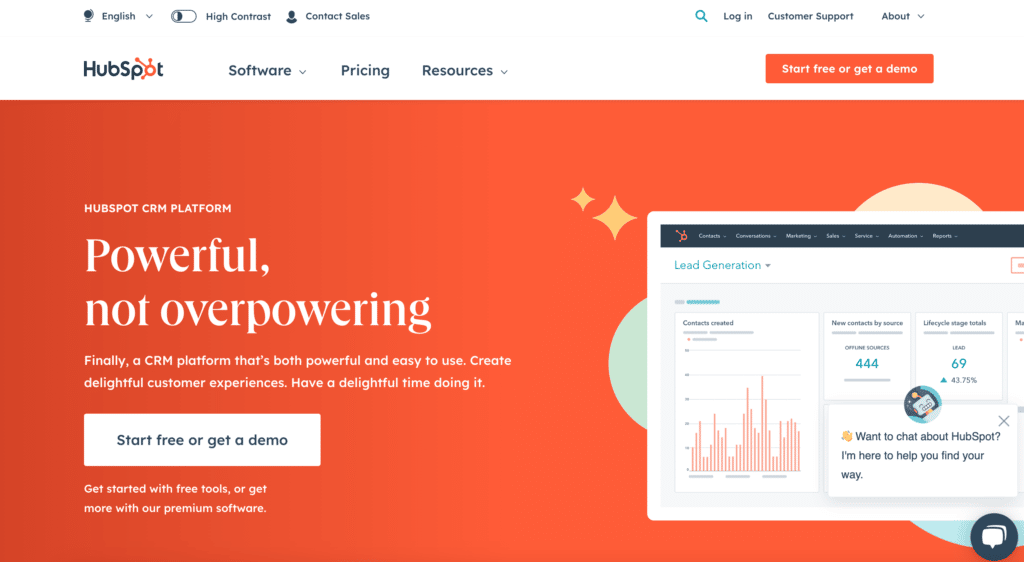
Why We Chose It
Out of all the manufacturing CRM software we reviewed, HubSpot CRM was our top pick for manufacturing businesses.
The platform has features tailored to meet manufacturers’ needs, including sales automation, customer segmentation, and lead tracking.
It also has several pricing plans, so you can choose the one that fits your budget. HubSpot is incredibly easy to use and set up, so you won’t have to worry about complicated setup processes or training employees.
Overall, if you’re looking for a CRM system tailored to manufacturers’ needs and offers powerful features at an affordable price, then HubSpot should be your top choice.
Pricing
HubSpot offers a free plan with several pricing plans to users.
These monthly pricing plans include the following:
- Starter Plan: This plan is $20 monthly for two paid users and includes email and in-app chat support, simple automation, and a meeting schedule.
- Professional Plan: This plan is $890 a month, but you receive five paid users, standard CRM integration, forecasting, and advanced phone support.
Pros
- Free marketing tools
- Up to 100 inboxes for the most expensive plan
- Several options for marketing automation
Cons
- Pricing plans get very expensive
- The main purpose is as an all-in-one tool
- Reporting is limited
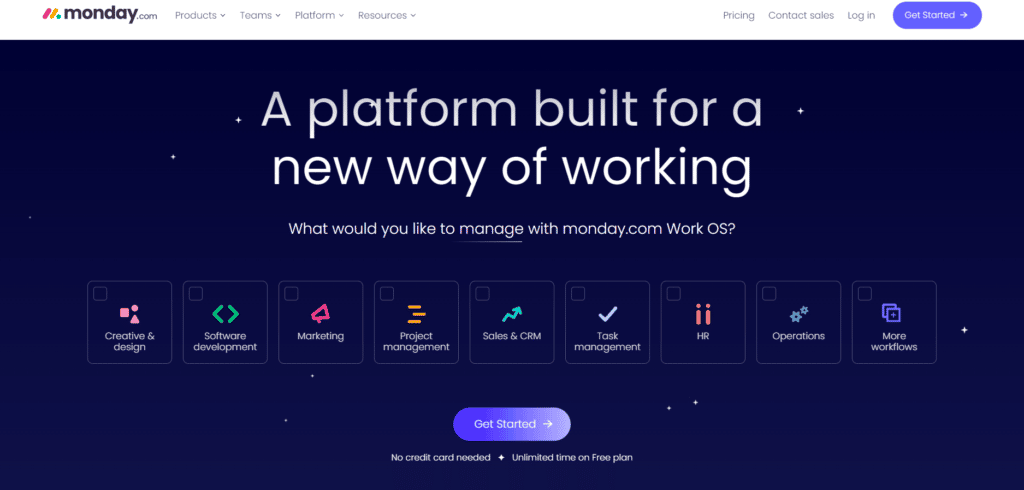
Why We Chose It
Monday.com is an all-in-one workflow and CRM platform tailored to manufacturers’ needs. It helps simplify collaboration, manage customer relationships, and streamline processes with powerful features.
It also offers several pricing plans to suit different budgets and has an intuitive user interface that makes it easy to use.
Monday.com offers 24/7 customer support and detailed training materials to help you get up and running quickly.
Pricing
When it comes to pricing, Monday.com has quite a few different pricing plans, including a free forever plan as well.
These plans include the following:
- Individual Plan: This free plan comes with up to two team members, 1,000 leads, and web forms to capture leads.
- Basic Plan: This plan costs $10 monthly per seat and includes iOS & Android apps, unlimited free viewers, unlimited contacts, and customizable pipelines.
- Standard Plan: This plan costs $12 monthly per seat and will help automate sales processes and streamline communication. It also includes activity management, quotes & invoices, and custom CRM integrations.
- Pro Plan: This plan costs $20 a month per seat and is targeted toward gaining insight into your entire sales cycle and forecasting. It also includes sales analytics, Google calendar, email tracking, and automation.
- Enterprise Plan: This plan includes customized pricing for users who want a more personalized experience. However, users must contant Monday directly to receive a free quote.
Pros
- Free plan available
- Has mobile app accessibility
- Tools to help with greater supply chain visibility
Cons
- Pricing plans get expensive past basic plan
- Activity logs for team members are limited
- Free plan has few key features
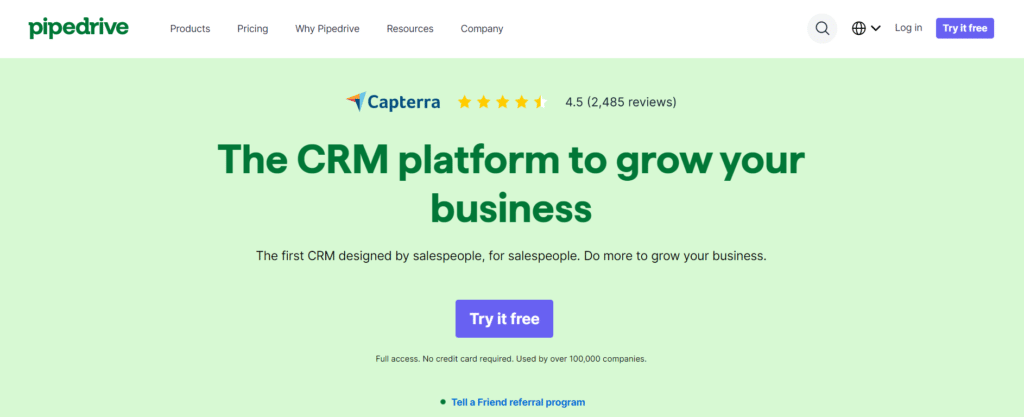
Why We Chose It
PipeDrive is a powerful CRM software that’s geared to the needs of manufacturers and helps streamline processes, manage customer relationships, and optimize collaboration.
It includes several features such as sales automation, analytics, reporting, lead tracking, and more. Also, PipeDrive has an intuitive user interface that makes it easy to use and several different pricing plans to fit any budget.
Pricing
Pipedrive has plenty of pricing plans for the varying needs of a manufacturing business. They also have a 14-day free trial.
These are the annual subscription plan Pipedrive offers:
- Essential Plan: This plan is priced at $14.90 a month per user and comes with 24/7 support and 300+ integrations, and lead management.
- Advanced Plan: This plan is priced at $24.90 a month per user and comes with click tracking, group emailing, and full email sync with templates.
- Professional Plan: This plan is priced at $49.90 a month per user and comes with enhanced custom reporting, revenue projections, and create, manage and design contracts.
- Enterprise Plan: This plan is priced at $99 a month per user and includes the same features as the previous plan plus more advanced features.
Pros
- Tools to improve the sales pipeline
- Client management
- Sales team management
Cons
- Limited custom fields
- Phone support limited to more expensive plans
- Analytics are limited
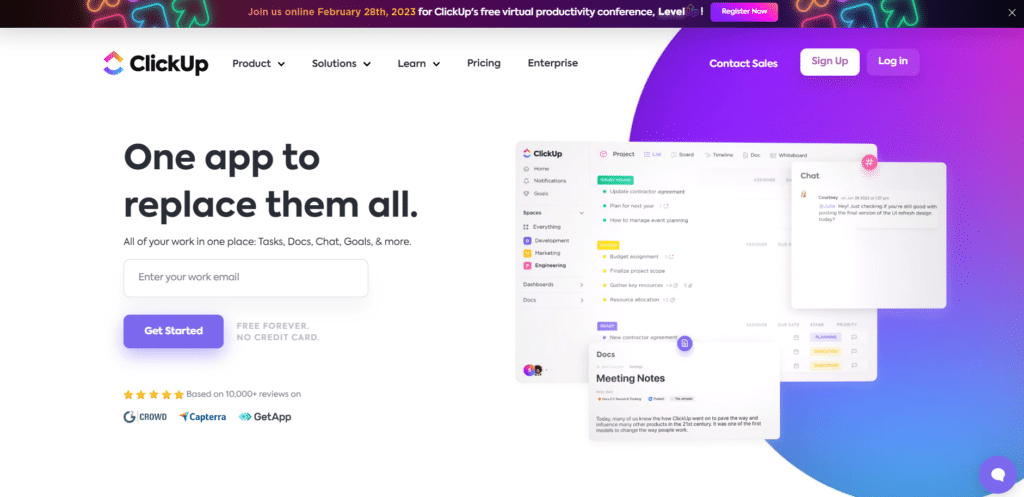
Why We Chose It
ClickUp is a powerful CRM software that’s directed to the needs of manufacturers. It provides an all-in-one solution for managing customer relationships and streamlining processes with features such as chat support, simple automation, and meeting scheduling.
It also offers several pricing plans to fit any budget and has an intuitive user interface that makes it easy to use. Plus, ClickUp offers 24/7 customer support and detailed training materials to help you get up and running quickly.
Pricing
ClickUp has some of the cheapest pricing available and offers a 14-day free trial and a free forever plan.
Here are the annual pricing plans ClickUp provides users:
- Unlimited Plan: This plan is $5 each month per member and is great for small teams. This plan includes unlimited Gantt charts, resource management, unlimited storage, and agile reporting.
- Business Plan: This plan is $12 each month per member and is best for mid-sized teams. This plan includes workload management, timelines, custom exporting, and production schedules.
- Business Plus Plan: This plan is $19 each month per member and is best for multiple teams. You will get custom role creation, admin training webinars, custom permissions, and lead generation.
- Enterprise Plan: This plan includes customized pricing for users who want to gain the most out of the platform. However, to receive a free quote, users must contact ClickUp directly.
Pros
- Better sales processes than other crm software
- Ability to manage production schedules
- Tools for inventory tracking
Cons
- Amount of features can be overwhelming
- Limited time tracking
- Generating/Accessing reports is slow
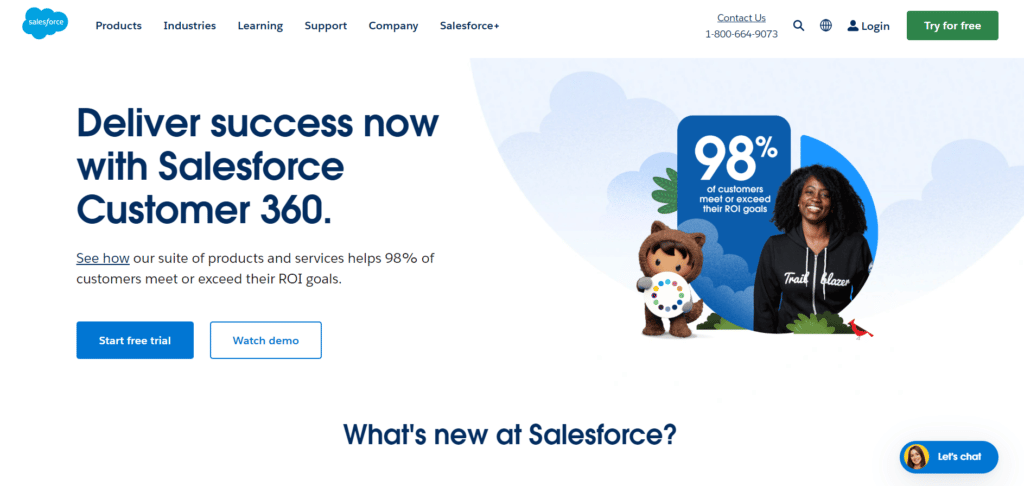
Why We Chose It
Salesforce is one of the most popular CRM and ERP software solutions for manufacturers. It provides an all-in-one solution for managing the sales process, streamlining your supply chain, and gaining insights into sales cycles with features such as analytics, lead tracking, and automation tools.
Also, Salesforce offers several pricing plans to fit any budget, has an intuitive user interface that makes it easy to use, and comes with 24/7 customer support.
Pricing
Salesforce has a free trial available if you’re a manufacturing business. However, the subscription plans’ customized pricing vary depending on the needs of the Salesforce CRM software. To receive a free quote, contact the Salesforce team directly.
Pros
- Targeted toward scalability
- Strong historical sales data
- Sales pipeline is useful from beginning to end
Cons
- Additional users and customization costs more
- Features can be overwhelming without the help of the salesforce sales teams
- Order processing can get bogged down
Closing Thoughts
The best CRM for manufacturing will depend on the varying needs of a manufacturing business. Ultimately, both ClickUp and SalesForce are great choices that offer customizable pricing plans and intuitive user interfaces. ClickUp is ideal for small to mid-sized teams and comes with 14 day free trial.
On the other hand, Salesforce is perfect for larger businesses that need scalability and powerful sales data. Whichever one you choose, make sure it fits your team’s needs and budget.
With the right CRM software, you’ll be able to maximize customer relationships, organize customer data, and gain valuable insight into sales cycles.
Let us know in the comments what you think of our list and which manufacturing CRM you’ve had success within the past!
Manufacturing CRM FAQ
CRM stands for Customer Relationship Management software. It is a system used in manufacturing to manage customer relationships, business growth, and gain insights into the sales process.
The best CRM software for manufacturing business will depend on the varying needs of a particular business. We recommend ClickUp and SalesForce, both offer sales forecasting and intuitive user interfaces.
Yes, Salesforce offers powerful CRM and ERP software solutions for the manufacturing industry.
It provides an all-in-one solution for managing customer relationships, inventory management, and gaining insights into sales cycles with features such as analytics, lead tracking, automation tools, and more.
The 3 main types of Customer Relationship Management software are Operational, Analytical, and Collaborative.
Operational CRM is used to manage customer data and interactions.
Analytical CRM uses data analysis to identify trends and gain insights into customer behavior
Collaborative CRM helps teams work together more efficiently by providing tools for collaboration.
Salesforce is the most commonly used CRM system. It offers powerful features, an intuitive user interface and customizable pricing plans to fit any budget.
You now know all about the different types of CRM software for manufacturing businesses and how they can help you streamline distribution chains and maximize customer relationships.
Newsletter Signup
Join The Leads Field Guide Newsletter for tips, strategies and (free) resources for growing your leads, and closing more deals.

